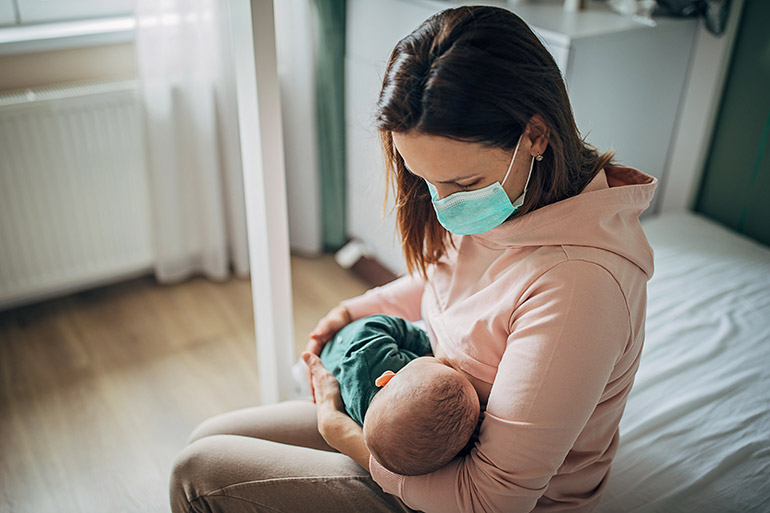
UBCO expert discusses latest breastfeeding research during National Breastfeeding Week
Breast is still best for babies, even during a pandemic, according to one UBC Okanagan nursing professor and women’s health expert.
Marie Tarrant is the director of the School of Nursing at UBC Okanagan and a researcher on women’s health and breastfeeding. She explains the latest trends in breastfeeding research, the relationship between Type 2 diabetes and nursing, and the latest guidelines for breastfeeding during COVID-19.
Canadian National Breastfeeding Week is October 1 to 7.
Pumping is on the rise
There is an increase in mothers feeding their infants only breast milk that they collected beforehand, according to Tarrant’s new research. Her findings showed that less than half of women in her study directly breastfed their babies. She adds that this is a common trend in Asia, North America and Europe.
“This is a good news, bad news story,” says Tarrant, who undertook the study with her University of Hong Kong doctoral student, Heidi Fan. “While it’s great that the babies are initially getting breast milk instead of formula, these women are more likely to switch to formula earlier than recommended.”
She notes that infants should be fed breast milk for a minimum of six months. Not only does breast milk meet the unique and changing needs of an infant’s nutrition, it also protects them against viral and bacterial infections.
“New mothers should first establish direct breastfeeding before introducing bottles. Seek out support to help with this early on.”
Breastfeeding reduces risk of Type 2 diabetes
Breastfeeding reduces diabetes risk in women who have developed pregnancy-related diabetes, according to a recent research review published by Tarrant’s group.
“Up to 20 per cent of women with gestational diabetes will go on to develop Type 2 diabetes,” says Tarrant. “This is a serious condition where blood sugar levels aren’t properly regulated and can lead to serious consequences later, including stroke and blindness.”
Her study analyzed data accumulated from 15 pregnancy-related studies and demonstrated a strong association between breastfeeding and improved regulation of blood sugar.
“The take-home message is that women are strongly recommended to breastfeed, especially if they have gestational diabetes. In fact, the longer they continue to breastfeed, the lower their risk for developing Type 2 diabetes.”
COVID-19 concerns
New breastfeeding mothers may have additional challenges during this time of physical distancing, suggests Tarrant.
“Changes away from at-home visits to online platforms are less hands-on and this may make it difficult for everyone,” she says. “Getting an infant to latch on can be trying in the early postpartum and often the best solution is an in-person demonstration.”
Tarrant recommends that new moms reach out to public health nurses and experienced peers early.
“Don’t wait until you’re desperate for help. Establish support groups right away. Health care professionals can come to your home and are able to safely provide guidance. Peers can provide much-needed psychological support and encouragement. Moms need to know that they are not alone.”
COVID-19 positive moms
“To date, there is no evidence that the COVID virus passes through breast milk,” says Tarrant. “Most organizations, including the World Health Organization, encourage all mothers to breastfeed, even if they are COVID positive.”
She adds the benefits of breastfeeding far outweigh the risk of infecting the infant. If COVID positive moms follow the protocols, such as mask wearing and hand washing, the risk is very minimal.
“Mothering through breastfeeding is the most natural and effective way of caring for the baby, even in these unusual times.”